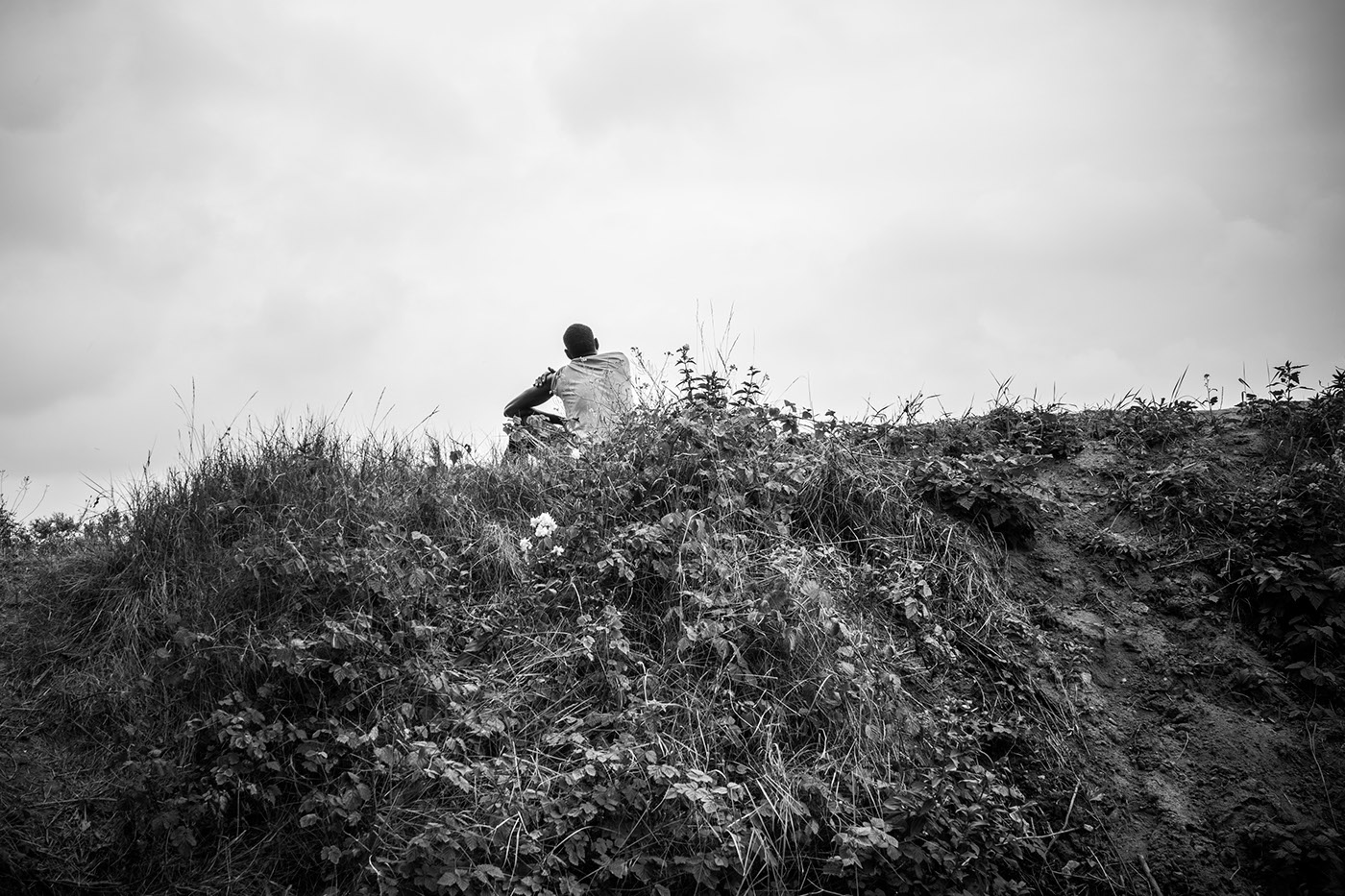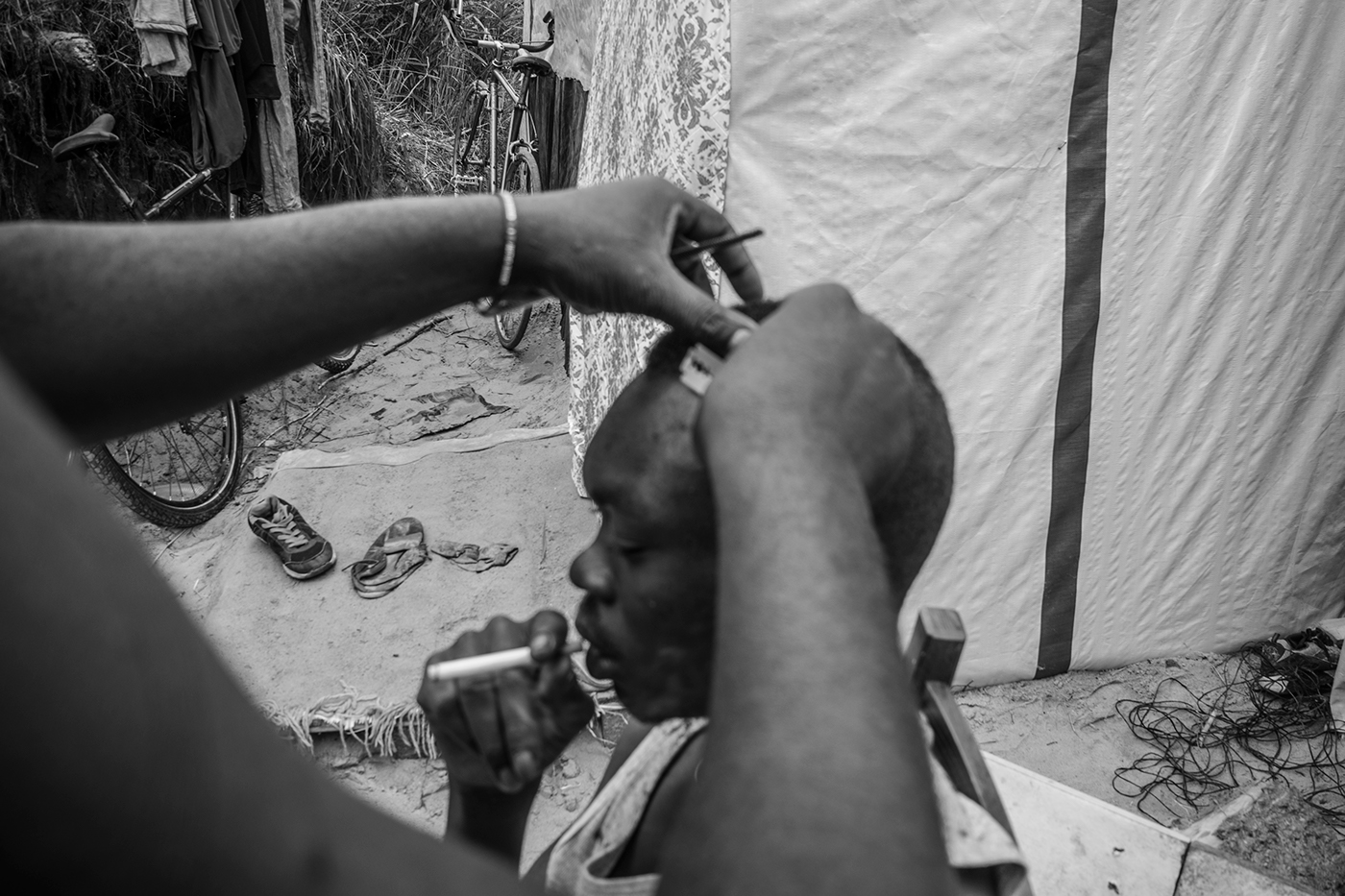The Jungle
Report: Dimitris Papageorgiou
Photos: Anna Pantelia
On the wake of the immigration crisis, few places contain such misery and sadness as the ‘’Jungle’’ of Calais does. The ‘’Jungle’’ gives inadequate shelter to all the outcasts of this world: People who were forced to flee their countries for numerous reasons, but at the same time they do not have papers or asylum in the European Union.
The Jungle is located few kilometers outside the center of Calais. It is estimated that 1.300-3.000 immigrants and refugees are stationed there, with some of them trying to enter the United Kingdom illegally while some others want to be granted asylum in France. I visited this place along with the photographer, Anna Pantelia, and we had the chance to meet these people, photograph and interview them.
Saturday morning I arrived outside the Port De Calais station. Immigrants were walking through the entire area. I saw four shadows running through the main road under the sign that points to the Euro Tunnel. One of them could barely walk. A refugee close to me says a short prayer in Arabic. I understand. This is a journey into Hell. Later in the morning, we located the Jungle.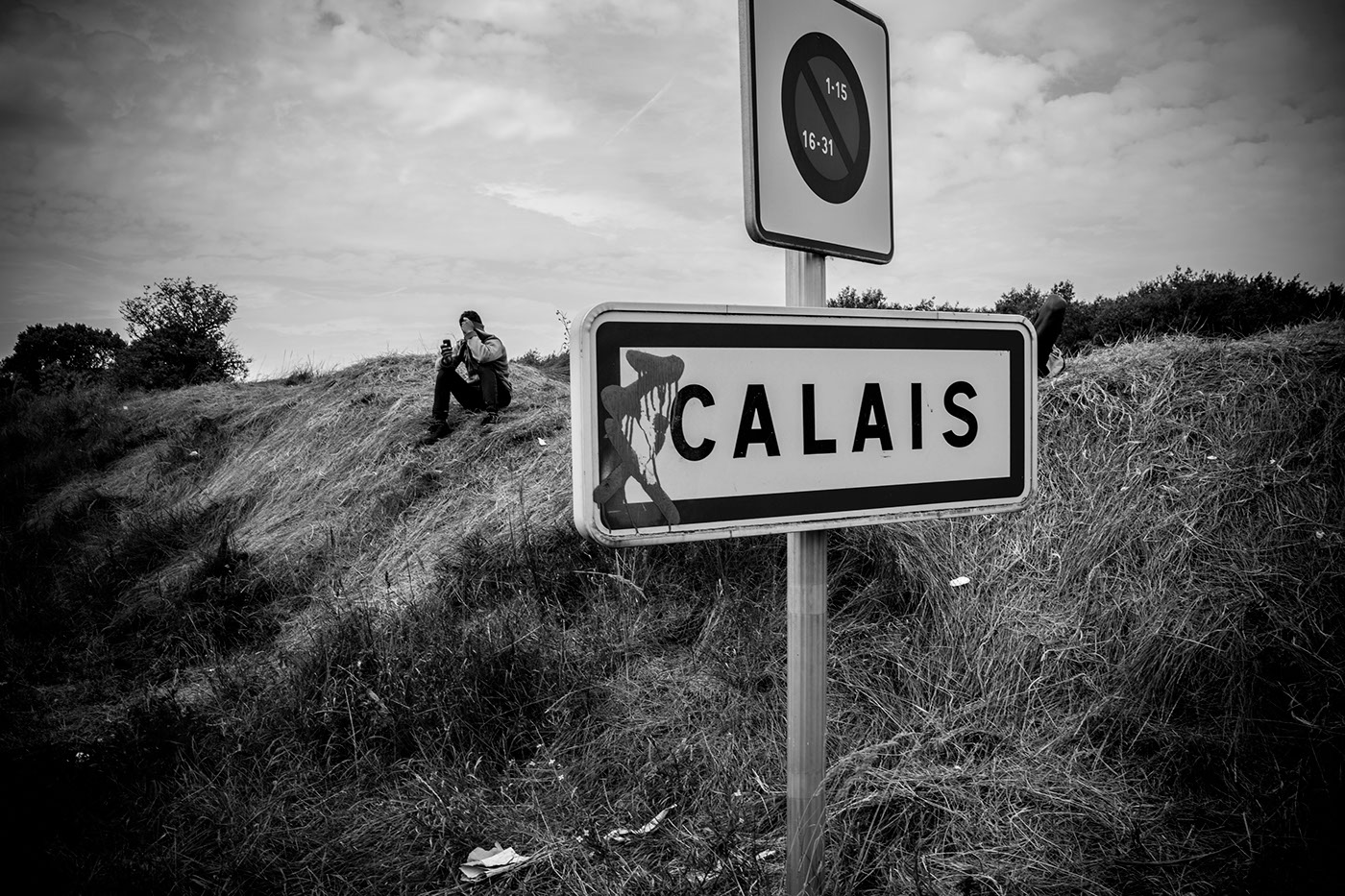
As soon as we arrived at the Jungle, we started walking on the main road, across some debris from previous shelters that were destroyed. The first people we meet is a group of refugees from Sudan. We felt scared, and so did they. We continued walking a little bit, and then we reached the start of the real Jungle, where the refugees try to live. We met a French woman, called Lynda, one of the principal directors of the humanitarian aid at the Jungle. The first thing we saw in the Jungle, was a table with coffee and breakfast, and a tent were the school for the refugee’s children is placed. We were less afraid now that more shocked, and we continued walking on the main road.
The people in the Jungle, try to survive with minimum resources. Such a case is the case of Pha, an immigrant from Mauritania, who lives in the most splendid tent in the whole Jungle. When we met him, he politely greeted us and invited us in his place, full of explicit paintings and signs. When we told him we are Greeks, Pha started talking Greek to me and Anna. It turned out that he lived for six years in Greece doing every kind of work he could. ‘’Athens, Rhodes, Creta, Arahova. I have lived in all this places’’, he tells us with a big smile. Along with him, we met two Londoners: Alessandro and Maria, who voluntarily camped with the refugees making their documentary. Pha has been living in the jungle for four months, after being forced out from the center of Calais by the French police, he says. ‘’They were coming at 3, 4, five o’ clock in the morning, and they told us to leave. Sometimes the police would chase us for seven km. They would spray us, or they would hunt us with dogs’’, he told us.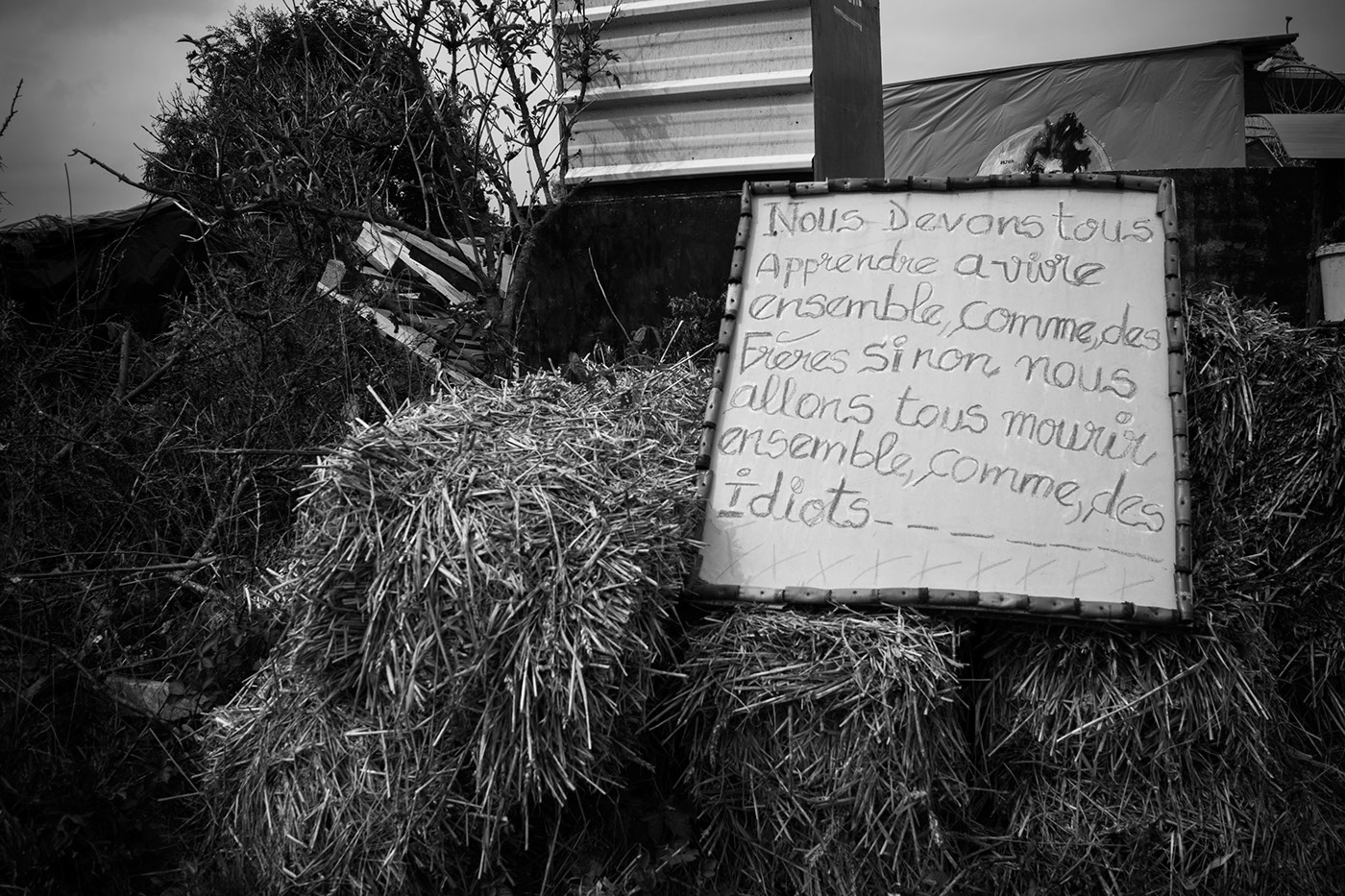
The Jungle contains many sad stories. Everywhere in the camp, you can see people with bandages on their legs or hands and many of them with open wounds. They are the ones that tried to cross the Eurotunnel either by feet or by climbing into tracks and trains. ‘’Eleven people died in the trains and the trucks’’, Pha informs us. Many of them do not want to talk. They are afraid of the media and blame them for prejudice against immigration. ‘’Journalists can present any story the way they want’’, Hakim, a refugee from Darfur, Sudan told me in Greek.
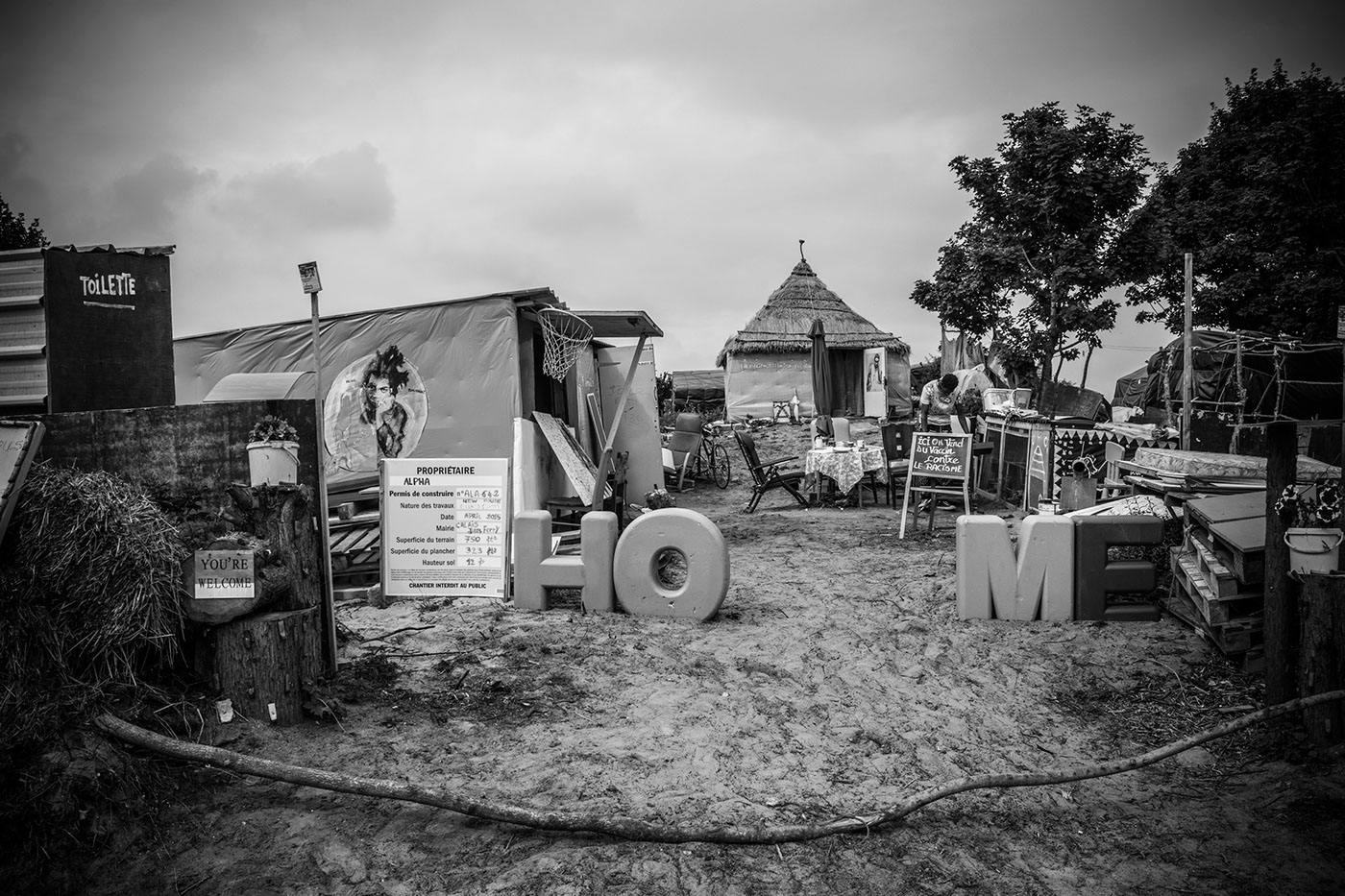
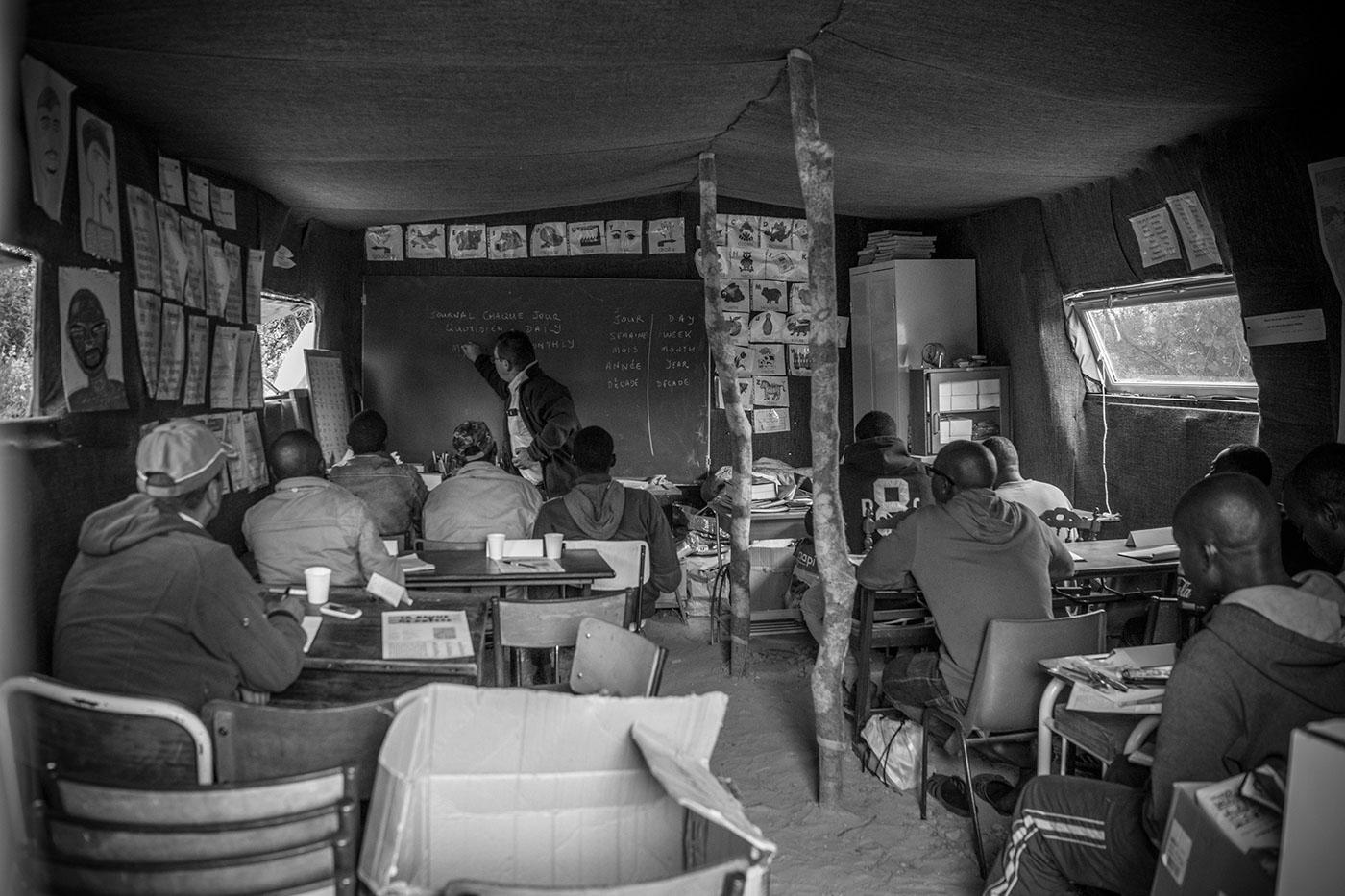

With the immigration crisis being on a rampage, the Jungle has established some coherence between its inhabitants. The NGO’s have done a great work. The refugees get two hot meals every day, and showers are built for them, along with clean water, while doctors regularly visit the refugees. The problems are enormous, however. There is also a school for the children that live in the Jungle. ‘’We teach them, French, mainly’’ says Linda. Her smile after I gave her some chocolates for the children was priceless. She lives and breathes this place, along with many other people.
The inhabitants of the Jungle, have formed small groups where they try to help each other. ‘’Here, the only thing we can do is help each other’’, says Ismael, a Sudanese, who was giving a splendid haircut to one of his friends using a piece of a sharpened metal clip. The refugees from Sudan –mainly Darfur- are one of the most dominant groups and their views of the Jungle are astonishing. ‘’When you have to cross the dessert and then survive on the Mediterranean sea, the Jungle is not that bad’’, says Mahmud, a young 19 years old Sudanese who was observing the haircut and laughing. Others do not share Mahmud’s views. Many of them were unapproachable, and they distrust journalists. When we approached the Sudanese that was giving a haircut to his friend, Anna wanted to shoot the scene. As soon as she gets her camera out, we hear a shout: ‘’Journalists!’’. After talking with them, we discovered they were not mad against the media –they were afraid of them. Anna’s presence though was fundamental. They seem enslaved by her smile and they let her take pictures. Good thing she was there.
On the center of the camp, lies a tent made Christian church. The church used to have an immigrant priest, but he left. ‘’We operate the church, and we pray here for all of the people that lived in the Jungle and for all those that want to live’’, says Mele from Ethiopia. ‘’We want all the help we can get, and the bigger one is a prayer of everyone who cares about us. Jesus will help us all’’, he continues.
Further into the Jungle, it is evident that each culture has shaped the place differently. Some areas, the ones inhabited by Africans, have a reggae influence, while the Middle-East ‘’neighborhood’’ seems like a part of Kabul or Islamabad –keep in mind though that these places were created with almost no resources-. Inside the Jungle, one can find even restaurants, mainly Afghan and Pakistani. A smiling Afghan, Hassan, proudly reads me the catalogue of his restaurant and boasts that his chicken kebab is delicious. Not everyone though has the same smile as Hassan. Many are hungry, and their eyes are red. They are the unfortunate that will try as soon as possible to cross the Eurotunnel. Many of them will get injured, and some of them will not return.

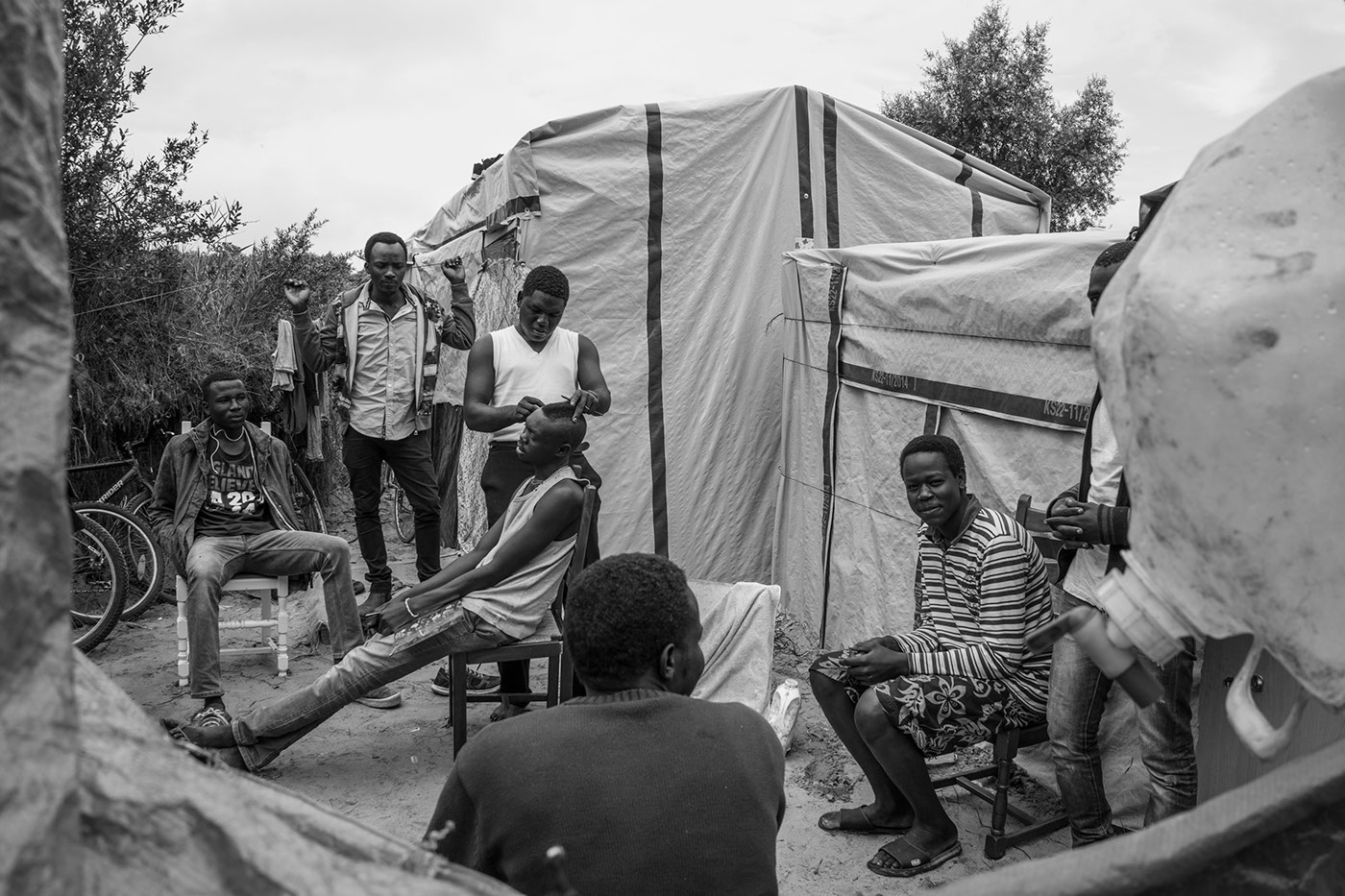
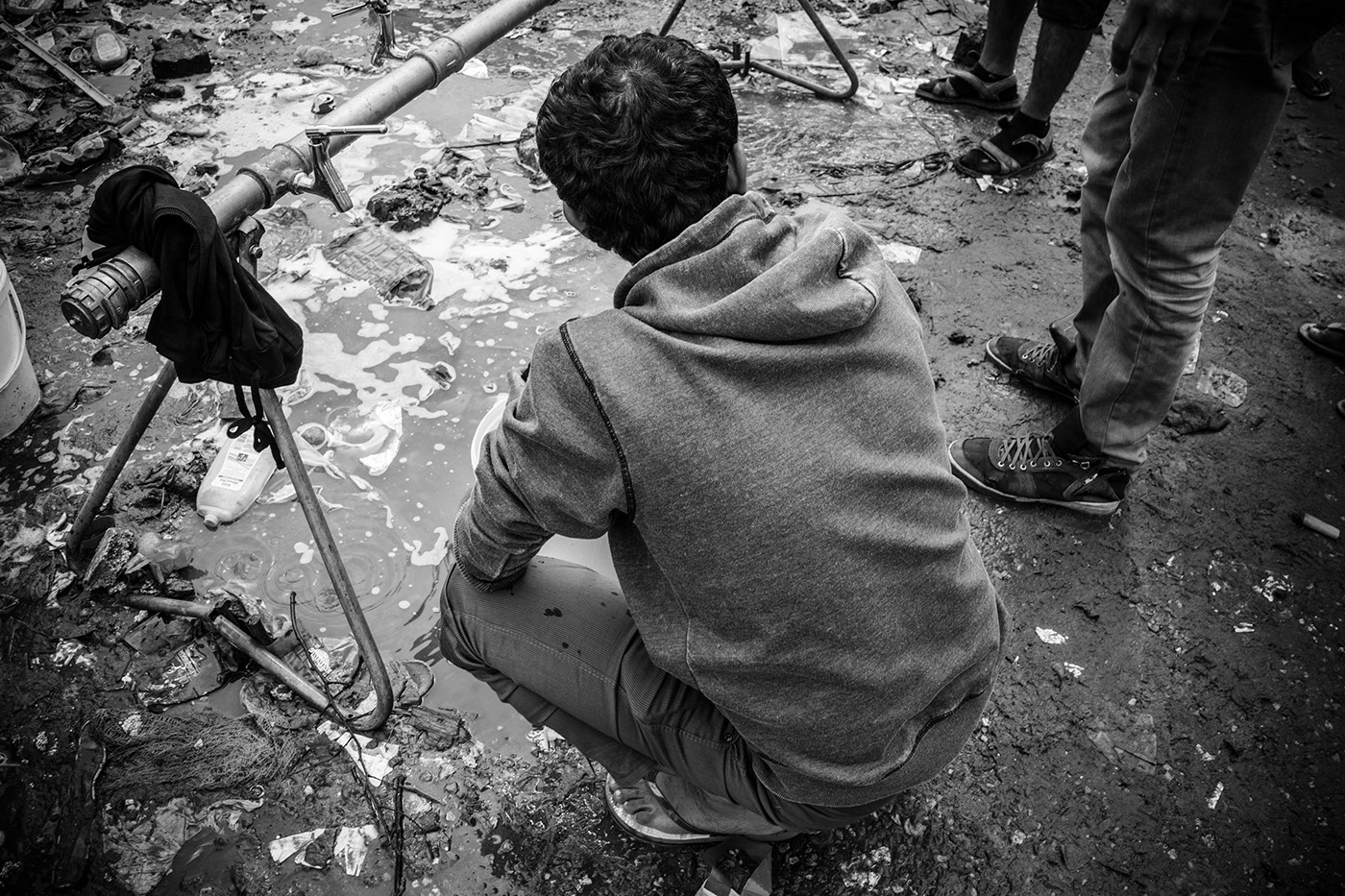
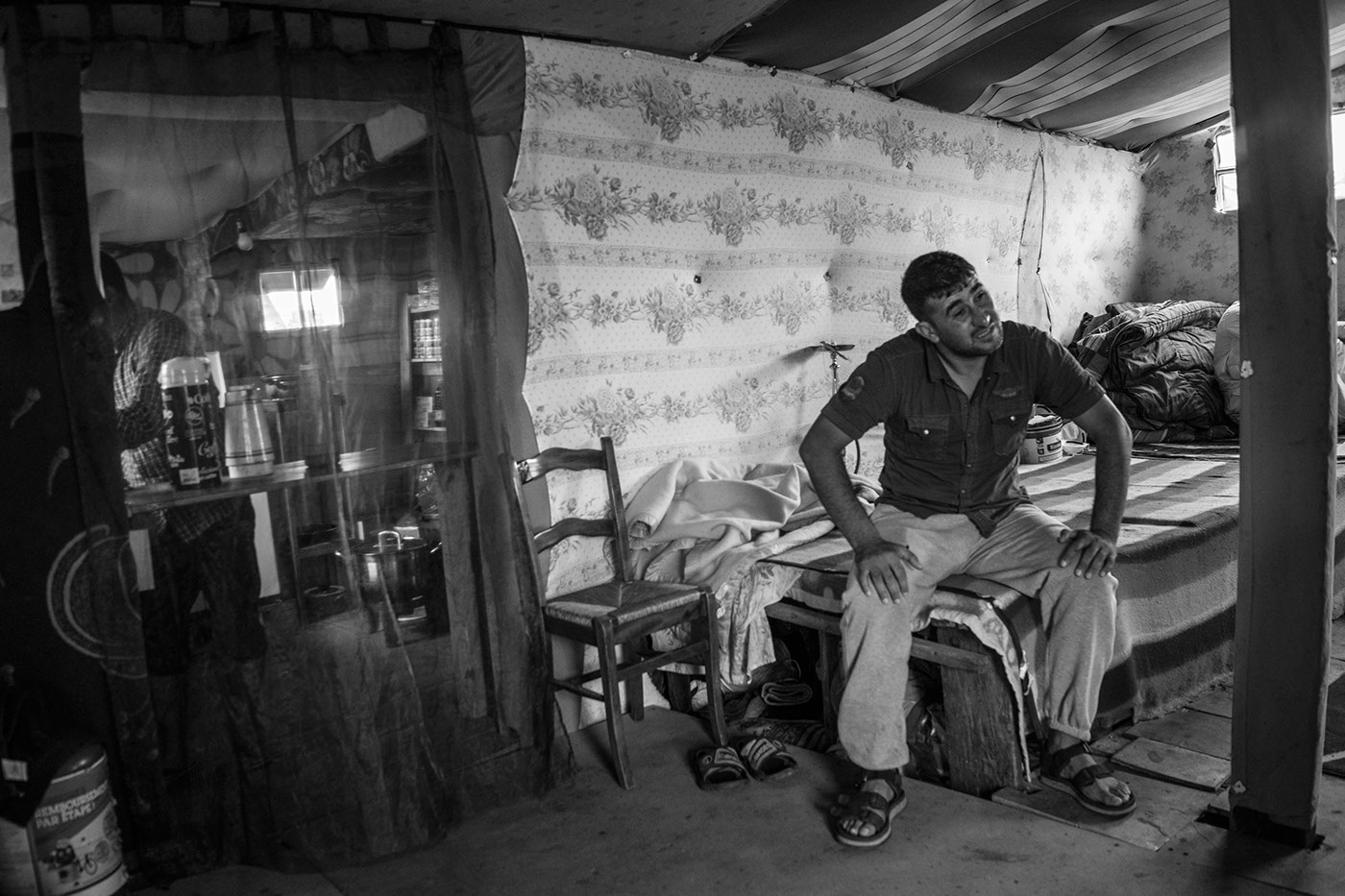
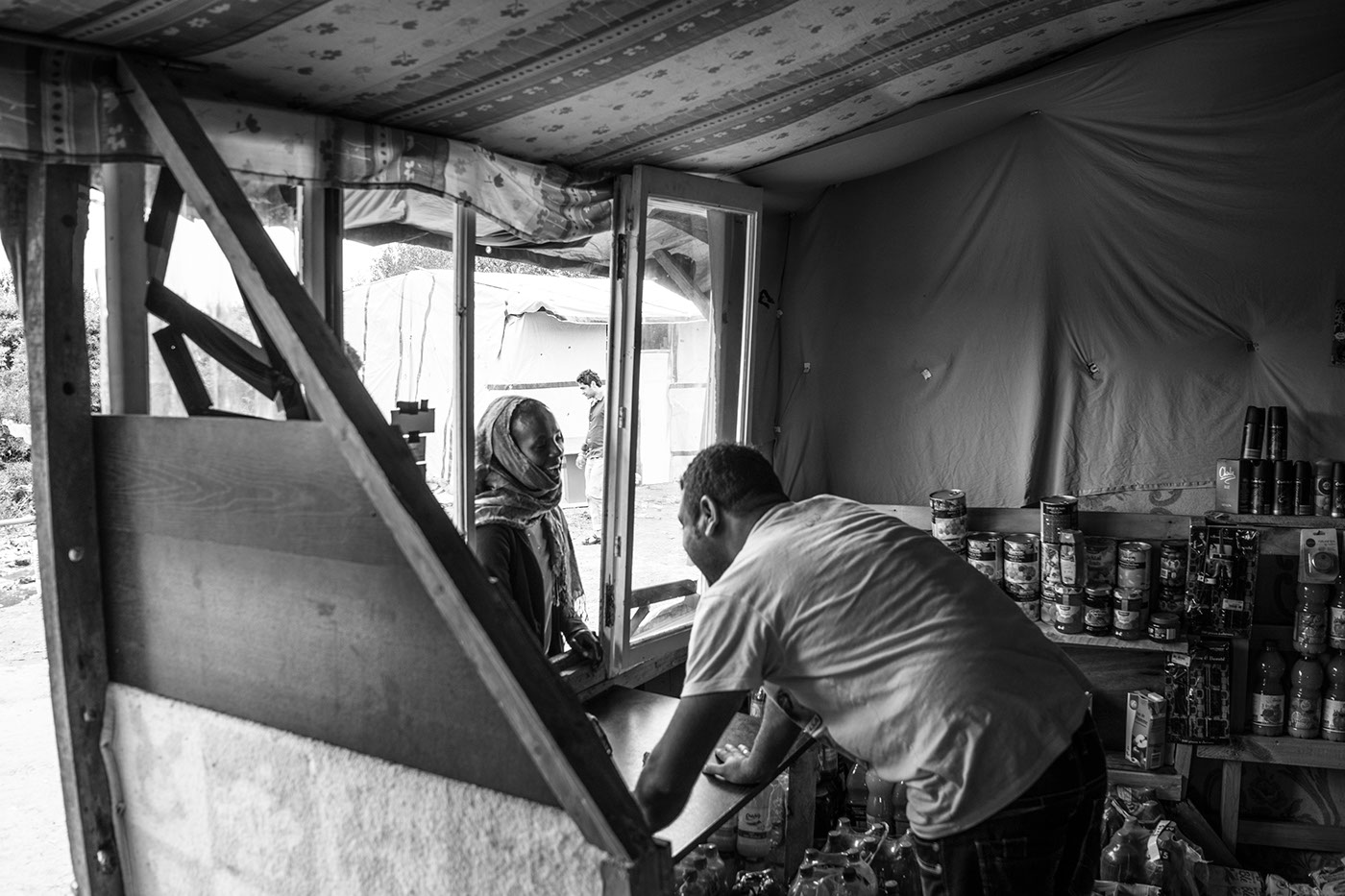
Next to the ‘’restaurant’’, we found a mini-shop that resembles a traditional café of the Middle East. There, we met Ahlan and Niru from Pakistan and Jildan from Afghanistan. As soon as they met me and Anna, they offered as tea and caramels, and they were eager for a nice and long talk. It turned out that also them, as many of the inhabitants of the Jungle, spent some years in Greece as illegal immigrants, before they started travelling across Europe, searching for a better future. Instead, they found themselves trapped in the Jungle. ‘’Jungle life is a jungle life. Life is not real here, it’s not human, but I have no other option now’’, says Jildan, who lived in Greece for 18 months before he travelled to FYROM, Serbia, Hungary, Italy and finally France. Same goes from Ahlan, who used to live in a village of Pakistan in the borderline with Afghanistan. He says to us that he was forced to flee his house because of conflicts with the Taliban. He lived for a year in Athens, and while he has warm memories of the citizens, he tells us that after the rise of the Golden Dawn, things were not so easy for him.
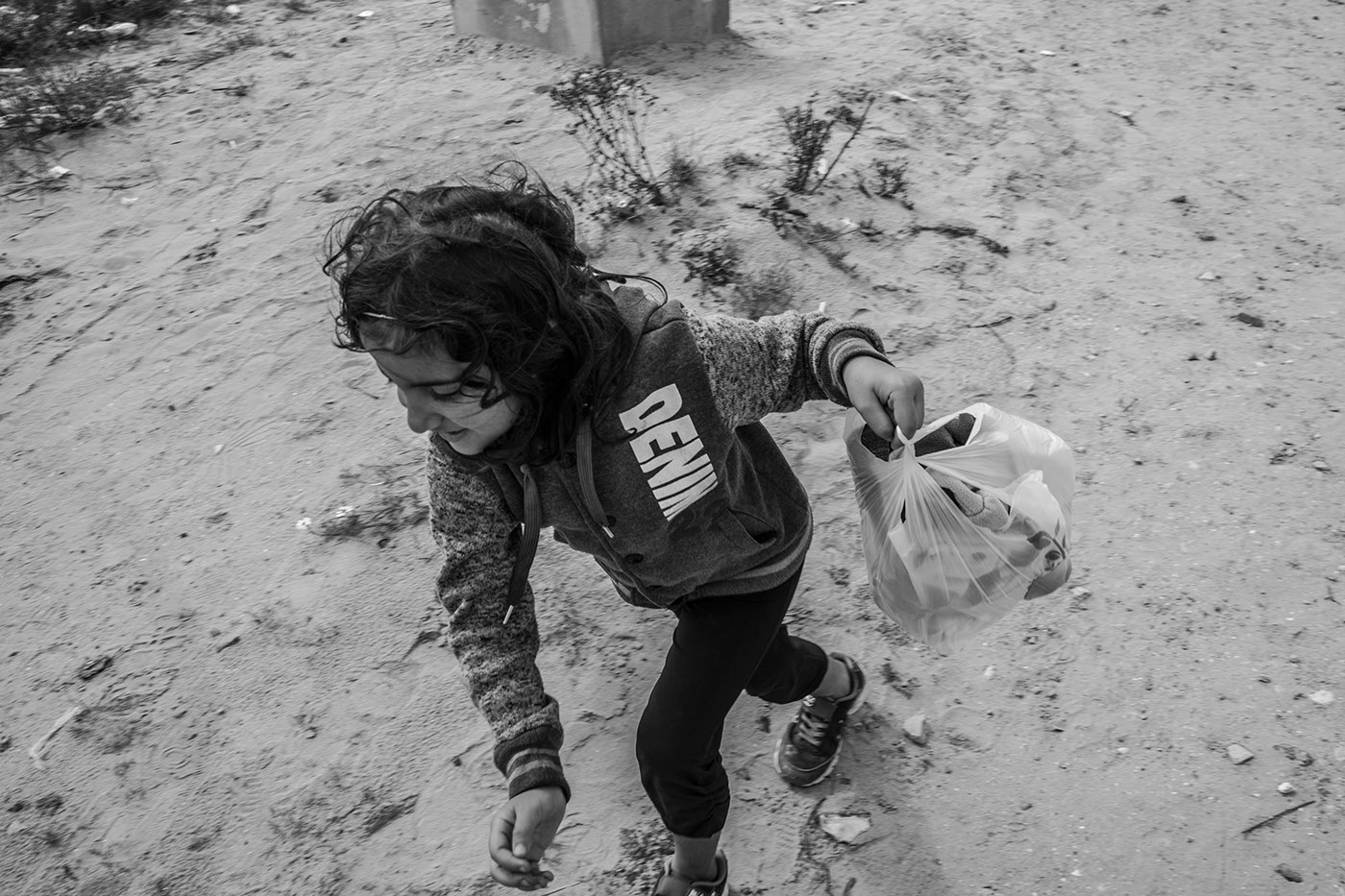
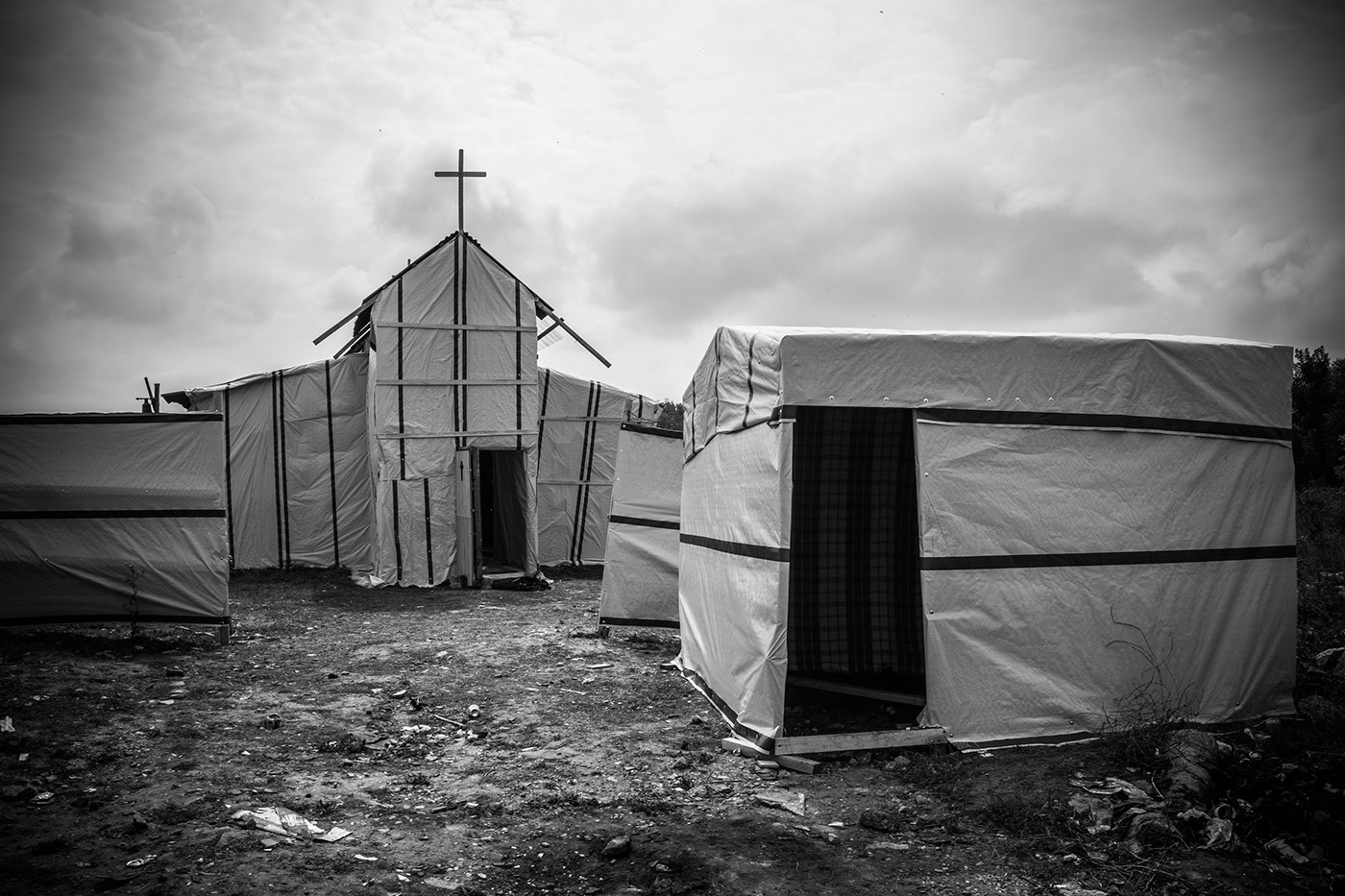
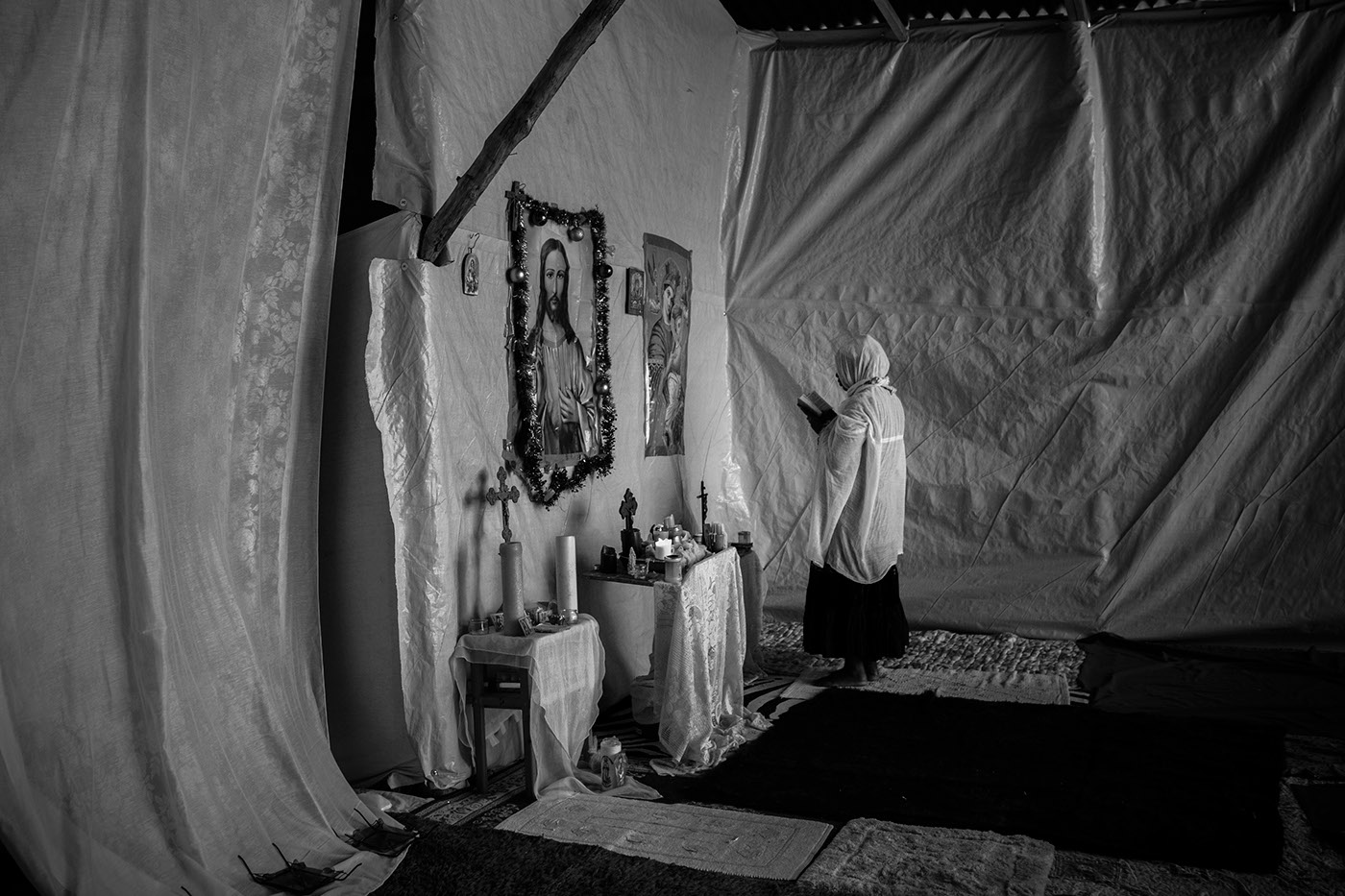
Bravery is not a hard thing to find in the Jungle. Most of the refugees had to travel enormous amounts of kilometers to reach Europe. Jildan left from Afghanistan and crossed Pakistan and Turkey before he reached Europe, where he went in five countries. Others, like Pha, have been moving for ten years across Europe. ‘’I want to take a breath, to live somewhere. I do not wish to go back to Mauritania’’, says the charismatic painter, with a tired smile. Another brave soul that lives in the Jungle is Fashtun from Iraq. We met him along with his friend Abdul, who does not speak English, and his six years old daughter, a smiling angel running around the Jungle. ‘’I wanted to go to Germany, but my friend intends to go to the United Kingdom. He does not speak English, so I have to stay here with him. He has a child. I am not letting him do that crazy thing with the train. He must not do it. So I am staying here with him’’, he says.
People like Pha, or Jildan are clear about their intentions: They want to try their best and get a work permit for London. Others, like Hakhim, do not have any preferences: As long as the place they live is not in war, they are fine. Most of them, though, are concerned about the wellbeing of the children in the camp. ‘’It is sad when you cannot feed your child, or you cannot even fulfill here basic needs. Children need to be happy but instead they are here, says Fastun.
Calais is a place full of sad histories. The shades of those who passed in their effort to cross the Eurotunnel, as well as the sad faces of the children living there, make the air thin. On the same time, though, hope blossoms even in the Jungle.
It was a journey into darkness. However, as the quote says, ‘’the night is darkest just before the dawn’’. Let’s hope that the dawn for the residents of the Jungle of inequality will soon come.
